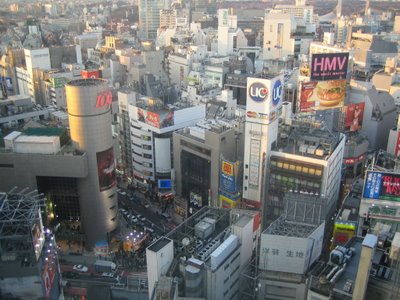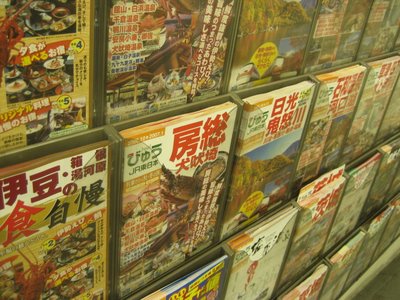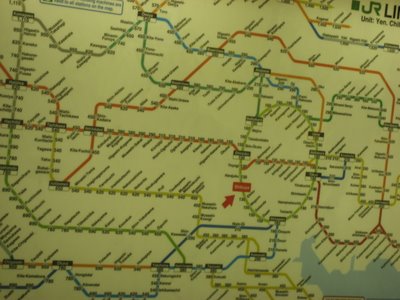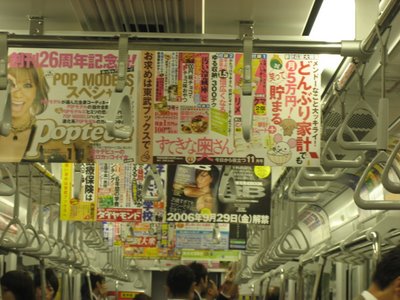Talked before about density as a characteristic of Asian cities, previously using Hong Kong as an example. Though this post's title might sound like some dodgy straight-to-DVD Asian-ish action film it's just me trying to prove my point again, this time using Tokyo.
While Hong Kong's density is a sort of jostling crowdedness, Tokyo's density is a sort of concentration of maximum content into the smallest possible space. This applies particularly to people and information;
While Hong Kong's density is a sort of jostling crowdedness, Tokyo's density is a sort of concentration of maximum content into the smallest possible space. This applies particularly to people and information;

view of Shibuya district

destination guides at a station
 map of Tokyo's railway lines and their stations
map of Tokyo's railway lines and their stationsDense travel structure even. Unbelievable amount of stations in Tokyo, tightly packed destinations.

Advertising is particularly compacted too. More information the better when you have the trapped attention of the concentrated (though perhaps not concentrating) Tokyo commuter, it would seem.
What effect does this concentration of content have on people? Perhaps sets up an expectation and reliance on it but also necessitates a relief from it? Japan is the home to Zen after all...
1 comment:
By the way, I watched the (fairly poor adaptation of) Johnny Mnemonic the other night. I think they were making a point about information overload eventually producing fatal nerve disorders. No wonder William Gibson bases all his stuff around the Pacific Rim...
Post a Comment